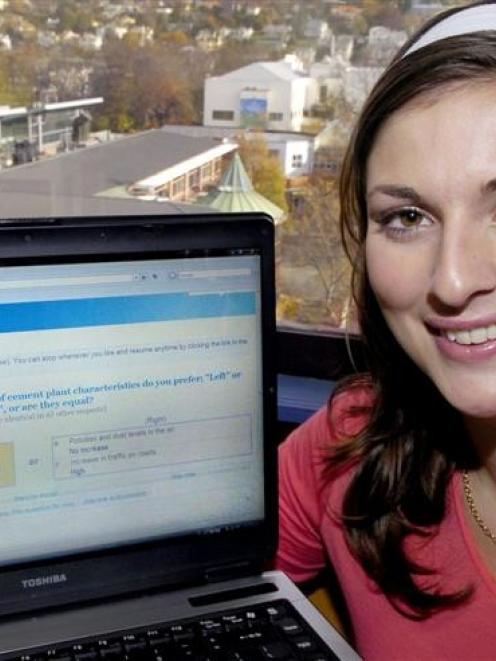
Ms Fletcher is inviting residents of Weston and nearby Oamaru to participate in the project, part of a thesis for her degree.
"Communities that have had a major project planned in their area are often left feeling frustrated and confused about what the project will mean for their lifestyle."
Ms Fletcher believed there needed to be improvements in the ways people could be involved in the resource consents process, and was excited about her plans to use an interactive computer package.
Developed at the University of Otago, 1000Minds has been used to assist decision-makers in various fields, but not at the public level.
Her aim is to see if the multi-criteria decision-making programme can assist decision-makers considering resource consent applications.
The software breaks complex issues down into more simple decisions, by considering only two factors at a time - for example, trading off an increase in traffic to reduce pollution.
By making a series of trade-off decisions, the software builds a picture of criteria people deem to be the most important.
The cement plant has been a hot topic, with much debate about its effects on the community.
Not everyone has the same opinions.
"People see their environment differently and have a range of views on how the plant will impact their everyday lives," she said.
"I want to understand what people consider more important; the visual effects, air pollution or perhaps an increase in traffic close to schools."
Using the plant as a working case study, Ms Fletcher plans to test whether 1000Minds could help identify stakeholder groups within the community.
If successful, it could be used to help environmental decision-making in the future, by providing decision-makers with a better understanding of how the community would be affected.
It was also hoped the process wouldassist participants to better appreciate the values of other members of their community.
Ms Fletcher can be contacted at the university's geography department or email fleng396@student.otago.ac.nz
